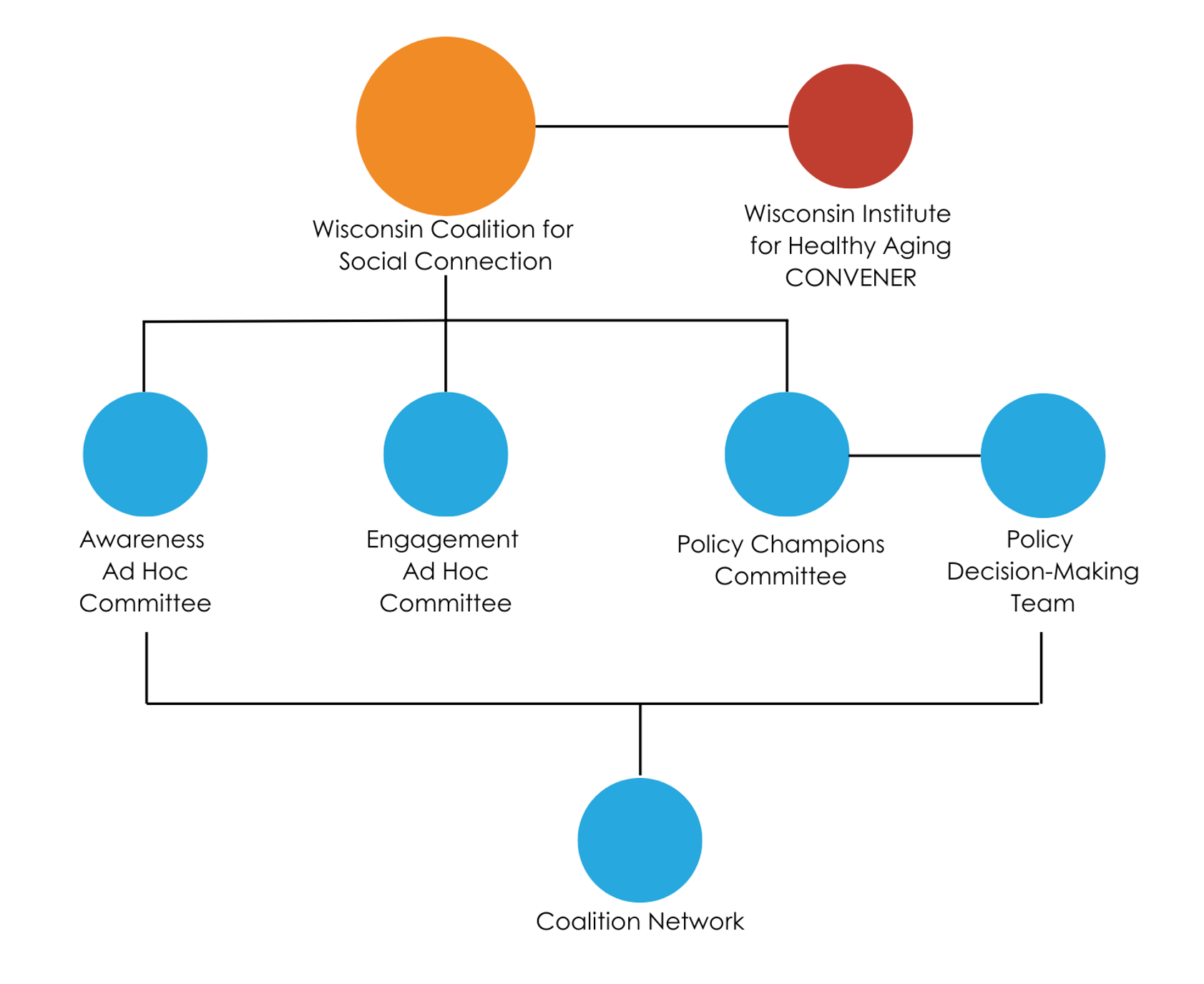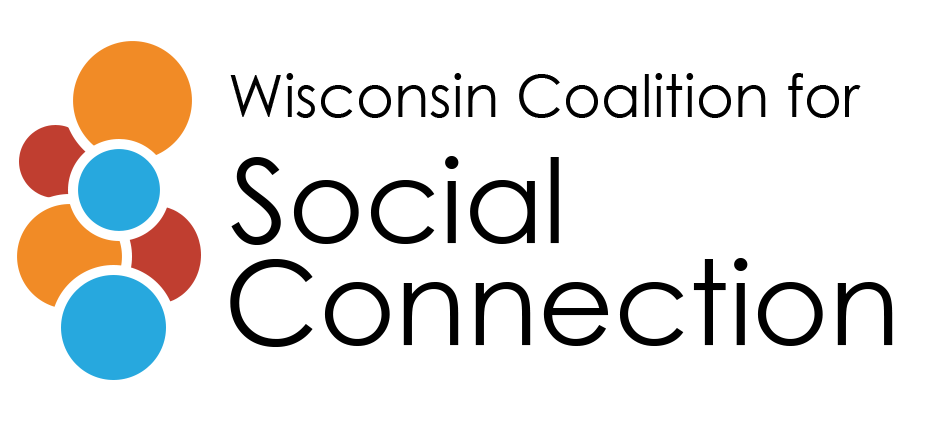Wisconsin Coalition for Social Connection (WCSC)
What if we could build communities where everyone feels a sense of belonging? Where real connections between people create impactful relationships? Where we all live with meaning and purpose?
The Wisconsin Coalition for Social Connection (WCSC) (previously the Wisconsin Coalition to End Social Isolation and Loneliness) brings community organizations and individuals together to make that happen. The mission of WCSC is to engage diverse partners in reimagining how we can combat the root causes and adverse consequences of social isolation and loneliness among older adults and people with disabilities in our state. Established in 2020, WCSC functions on a collective impact model with the backbone organization being the Wisconsin Institute for Healthy Aging (WIHA). The Coalition includes members actively working to address social isolation and loneliness and increase connection and a network of people receiving news and updates and utilizing resources to help address social isolation and loneliness in their communities. Though WCSC and the resources on this website are intended for older adults and people with disabilities, we look to collaborate with groups that serve people of all ages. For those looking for resources specific to youth (ages 0-26), we encourage you to contact the Wisconsin Office of Children’s Mental Health.
To learn more about WCSC, contact connectwi@wihealthyaging.org
Coalition Overview
WCSC Organizational Chart

Coalition Participation
Organizations working together to actively fight isolation and loneliness and increase connection across Wisconsin.
Coalition Membership (Spring 2025)
Ad Hoc Committees vary and are project-dependent. As of Fall 2024, we have three Ad Hoc Committees:
If you’re interested in joining an Ad Hoc Committee, please contact connectwi@wihealthyaging.org
A wide array of individuals and organizations make up our network. The network stays up-to-date with resources and research and implements strategies in local communities to address isolation and loneliness.


